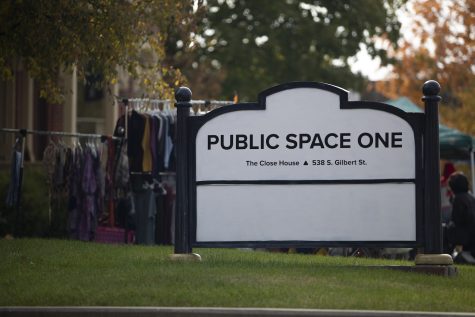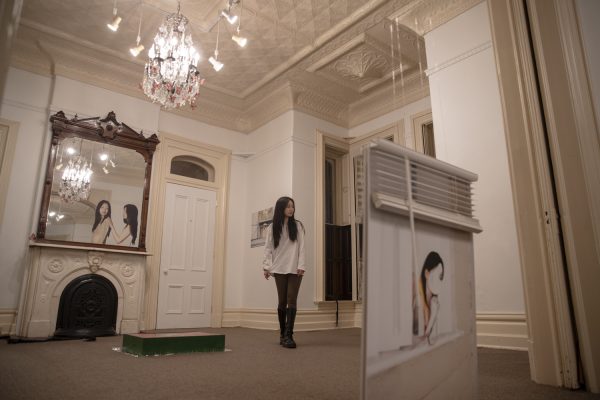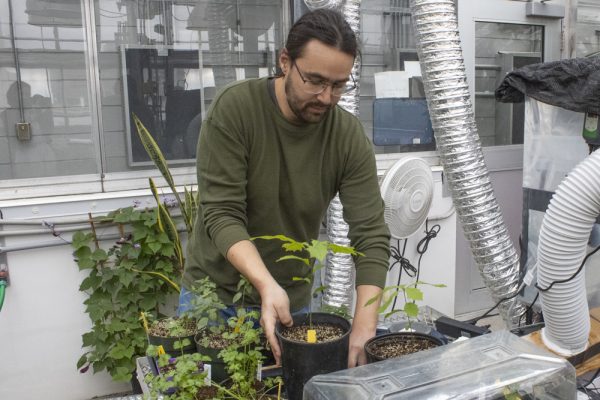‘Dog Sees God’ presents the difficulty of growing up
Bert V. Royal’s masterpiece of millennialism came to life over the weekend at The Mill.
Contributed
December 2, 2018
In an era of remakes, the reimagining of traditional characters that transport viewers back to younger days can either be a hit or miss. Growing up brings with it a host of realizations, excitement, and disappointments.
In Bert V. Royal’s “Dog Sees God: Confessions of a Teenage Blockhead,” familiar characters are explored outside the parameters of their household names. Given new names and identities, the characters from familiar pop culture grow through puberty and adversity, and they force audience members to face contemporary issues with real emotion. Amid disastrous remakes, this one strikes right at the heart.
The play is an unauthorized allusion to the comic strip “Peanuts.” The old comic franchise is filled with nostalgia for viewers to crack open, scene by scene. The play was presented Friday through Sunday at The Mill.
“Some things are dated, but the characters are timeless,” director Luke Brown said. “The presentation is recognizable, but no one will be like, ‘that’s what I expected.’”
Over the course of the play, lead actor Lance Junck portrayed high schooler CB. His exemplary coming-of-age compellingly presents the paradox of “good grief.” He wrestles with his sorrow as meaningful relationships crumble around him following the death of his beloved beagle. All the while, this teenage CB questions his sexuality and where things go when they die. His questioning provides a vantage point for the entire classic cast of characters to discover their own motivations and insecurities as individuals.
RELATED: Judas at the Mill for his last days
In apostrophe, CB begins the first act by addressing his pen pal (whom has never returned a letter) about the death of his dog. The insinuated Snoopy had rabies and killed his flying friend, Woodstock. The movement of the play is pushed by CB’s search for a sufficient answer to where his dog might be in the afterlife. Each person he asks presents him with a different answer and varying levels of sensitivity to his grief.
The small cast seemed to be just as tight-knit as their characters. Effortless chemistry was visible between actors and actresses. Casting began in September, and while the actors are not in high school, their convincing performances of teenage characters belied their maturity and professionalism within their craft on and off the stage.
The Mill provided for an interesting venue for the set. While the bar noise in the background was distracting, the venue provided a simple setting for the play. The set was rudimentary, and the cast took on the role of the crew as they switched around Rubik’s-cube-like boxes that served as chairs, tables, a piano, and more when turned from face to face and stacked. A lack of funds has been tough for this production, Luke Brown said. However, the minimalistic set proved to be a win, allowing the focus to be centered upon the characters.
“Dog Sees God” faced issues of identity in sexuality, faith, drug use, bigotry, and more without becoming dogmatic. At the end, CB is encouraged to ask questions and keep asking questions; it was a simple, necessary message that left the audience thinking and giving rounds of applause.















